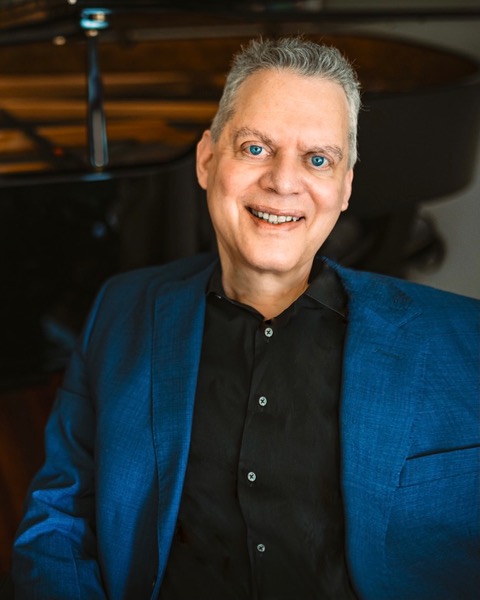I slept like a baby last night. And Orient is a great place for sleep—at least it always has been for me.
So when I asked Mikaela how she’d slept, I expected a cheery, enthusiastic “Great!” Instead, she said, “Oh, I slept really badly! I got some bug bites, and…I don’t know, I tossed and turned all night. I’m totally tired today.” She’s sharing a house with Sam, who also slept fitfully. “No bug bites, thank God. But I didn’t get enough rest either.”
Tuesday would normally be a day to lean a bit harder on the artists so that we could coast towards the weekend. But I proceeded with caution. You don’t push singers when they’re tired.
 You’d never know Mikaela was sleep-deprived from her singing. She sounded, in fact, as if she’d had nine hours of sleep and a refresher nap. Today we tackled a vocalise by Saint-Saëns, “Le rossignol et la rose,” a coloratura showpiece. Mikaela’s voice is unusual: on the one hand, she has a strong, colorful middle and low range that she can lean on for popular music. But she also has a high soprano’s extension and the clear articulation of a virtuoso. Even at half-strength she read through the Saint-Saëns piece without any trouble. Chromatic scale? Perfect. High D? You call that high? Mikaela has great musical instincts. My job seems to underpin her impulses with information, background, a bit of history, and the confirmation that she is indeed on the right track. She can be a little cautious, but her intuitions are almost always right on the money.
You’d never know Mikaela was sleep-deprived from her singing. She sounded, in fact, as if she’d had nine hours of sleep and a refresher nap. Today we tackled a vocalise by Saint-Saëns, “Le rossignol et la rose,” a coloratura showpiece. Mikaela’s voice is unusual: on the one hand, she has a strong, colorful middle and low range that she can lean on for popular music. But she also has a high soprano’s extension and the clear articulation of a virtuoso. Even at half-strength she read through the Saint-Saëns piece without any trouble. Chromatic scale? Perfect. High D? You call that high? Mikaela has great musical instincts. My job seems to underpin her impulses with information, background, a bit of history, and the confirmation that she is indeed on the right track. She can be a little cautious, but her intuitions are almost always right on the money.
Sam was a bit low-energy, but he didn’t baby himself. He’s a clean musician with an easy, true voice. Cleanliness is next to godliness in the kitchen, but not always in the concert hall. “Your singing needs more sex,” I blurted out today. “It’s a perfect line for Mozart, but Duparc and Chabrier need romance.” “I know,” he said. “Let’s find the dirt.” There followed some lessons in portamento and what must have felt like stylistic slobbery to Sam, as I got him to give up musical Teflon and use some olive oil in his songs. His voice took on a bit of musk and the glimmerings of priapic heat. He’s a very bright guy and he knows what I’m after. And yes, I admit that this hunt we’re on is a lot of fun.
Bobby had a bit of a breakthrough as well. I could see that he easily gets immersed in empathy for the characters in his songs, so that he tends towards the tragic. He is a wellspring of emotion. What he needs is objectivity. “Yes, the guy in Adam Guettel’s ‘There Go I’ is in deep trouble and it’s sad. But…he is choosing this life. Or pretending to choose it. Don’t mourn. Justify yourself. Tell us why it’s OK. Tell us why you need it.” Then something amazing happened. Bobby sang it again and became someone else: a tough, self-destructive young man in search of the next high—drugs, sex, booze, whatever. He became the song. “Wow. Wow! OK, what did you just do?” “Well, I sang the whole song as if it were kind of a joke.” Of course, there was nothing remotely jokey about what he’d just done. In fact, he looked lost and defenseless, desperately need of approval, helpless in his addictions. But not sad.
Two days in and the sands are already shifting. More tomorrow.


0 Comments